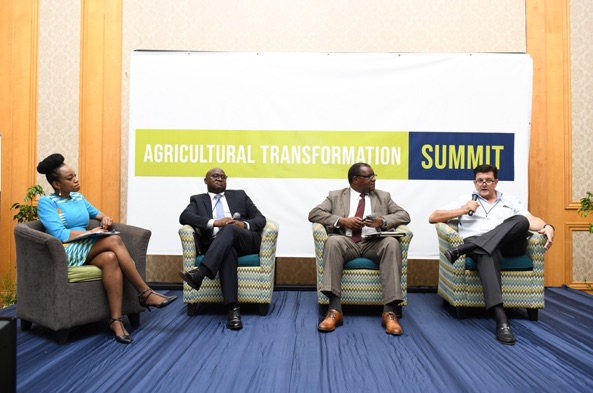
A word diagram from the WhatsApp conference group
The last week of November, approximately five hours before my flight left from DC to Lilongwe, I opened my suitcase and began to pack. Some may argue that sprinting around with literal moments to spare may not be the most prudent way to prepare for a week abroad. However, I was too excited; I was travelling to Malawi for the Agricultural Transformation Initiative’s (ATI) first annual Agricultural Transformation Summit.
The ATI is an arm of the Foundation for a Smoke-Free World that works to enable smallholder farmers in tobacco-dependent countries to diversify from tobacco dependency toward alternative, profitable livelihoods. As one of the most tobacco-dependent economies in the world, where tobacco accounts for over 60% of the country’s total annual earnings, Malawi is the ideal place for the ATI to get started. Integral to the ATI is the understanding that all ATI work will be a collaborative effort among every key stakeholder.
On December 4 and 5, more than 150 engaged and excited participants from the farming sector, including smallholder farmers and tobacco leaf companies, the private sector, government, banks, investment advisors, universities, and many more attended the ATI’s inaugural summit. These key stakeholders, led by exhilarating journalist turned moderator Femi Oke, came together to thoughtfully discuss not just the issues we face as we work toward agricultural diversification in Malawi, but also the exciting possibilities and solutions therein. You can find the full summit agenda here.

From left, Agricultural Transformation Summit host and moderator Femi Oke; Prince Kapondamgaga, CEO of Farmers Union of Malawi; Dr. Alexander Bulirani, Controller of Agriculture Services, Ministry of Agriculture, Irrigation and Water Development; and Jose Maria Costa, Executive Vice Present of Pyxus.
We’ve all been to conferences where halfway through day two, you’ve experienced “death by panel.” Yet this summit escaped conference monotony through a few key elements:
I left the summit feeling invigorated and excited at the prospects next year will bring to Malawi. After engaging collaboratively with farmers, government, the private sector, and so many more interested stakeholders, I’m confident together we can join forces to develop real, practical solutions. See you at the summit next year?
© 2023 Foundation for a Smoke-Free World. All rights reserved.